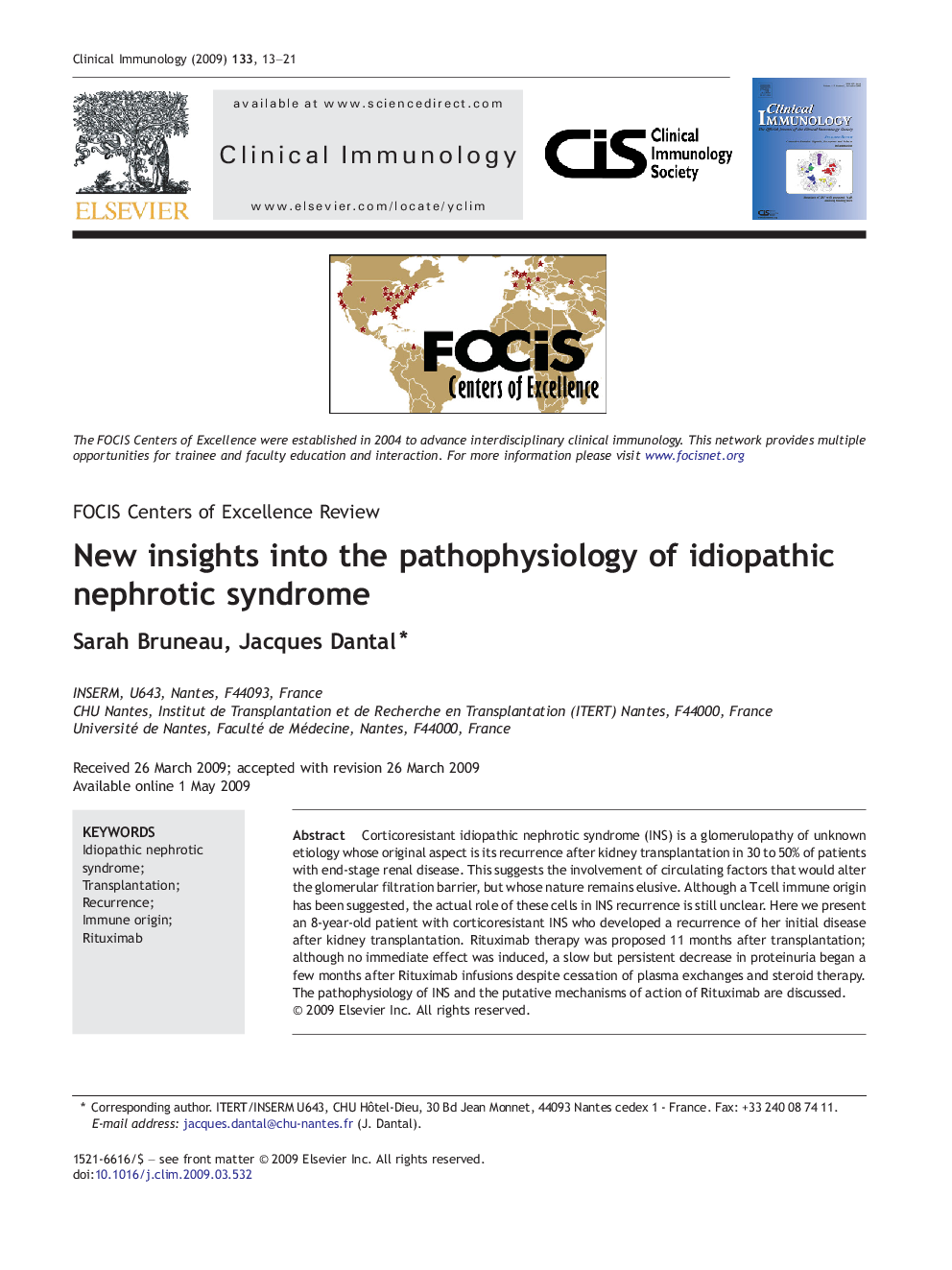| Article ID | Journal | Published Year | Pages | File Type |
|---|---|---|---|---|
| 3257888 | Clinical Immunology | 2009 | 9 Pages |
Corticoresistant idiopathic nephrotic syndrome (INS) is a glomerulopathy of unknown etiology whose original aspect is its recurrence after kidney transplantation in 30 to 50% of patients with end-stage renal disease. This suggests the involvement of circulating factors that would alter the glomerular filtration barrier, but whose nature remains elusive. Although a T cell immune origin has been suggested, the actual role of these cells in INS recurrence is still unclear. Here we present an 8-year-old patient with corticoresistant INS who developed a recurrence of her initial disease after kidney transplantation. Rituximab therapy was proposed 11 months after transplantation; although no immediate effect was induced, a slow but persistent decrease in proteinuria began a few months after Rituximab infusions despite cessation of plasma exchanges and steroid therapy. The pathophysiology of INS and the putative mechanisms of action of Rituximab are discussed.
